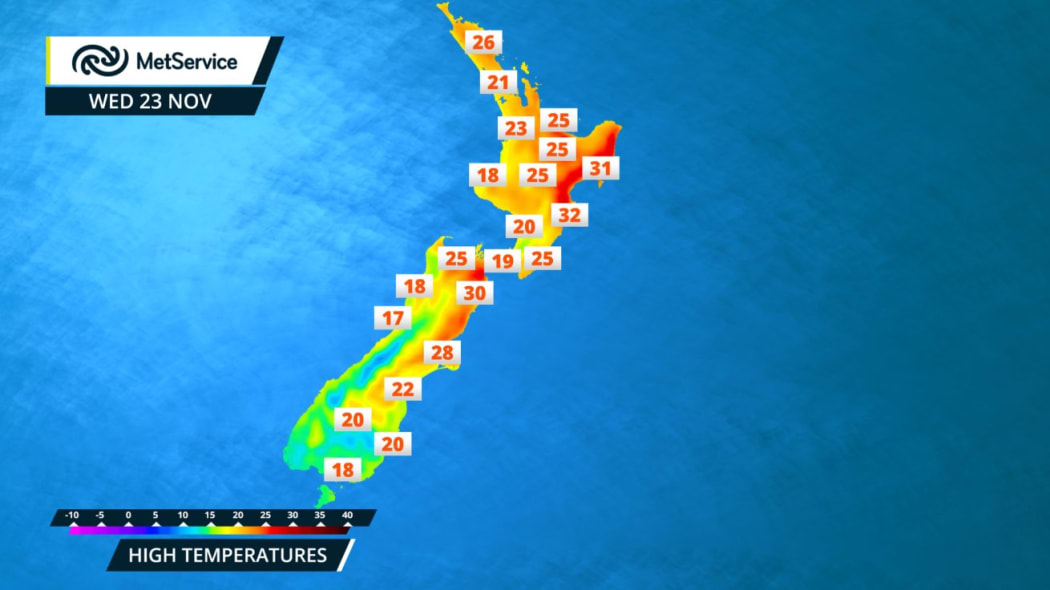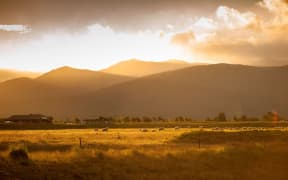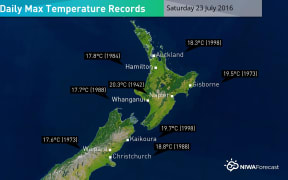Temperatures reached record levels in parts of eastern New Zealand today as high pressure and a warm air mass combined to create sweltering conditions.

Photo: Twitter / @MetService
National Institute of Water and Atmospheric Research (NIWA) forecaster Chris Brandolino said it was cooking in the Hawke's Bay.
"It's hot, baby, warm stuff. Wairoa, as of 2pm, was 34.1°C. That's the warmest temperature since 1971 at that particular location."
Mr Brandolino said 34.1°C was an all-time November record for Wairoa, and the hottest November temperature over the entire country over the past 15 years.
It wasn't just Hawke's Bay that was hot.
MetService said Gisborne reached 32.7°C, beating its previous record of 32.4°C for the month.
Hastings and Napier also recorded record temperatures, it said.
"Christchurch, in the city they've had 31°C and that's good enough to be the ninth warmest November temperature all time down there," Mr Brandolino said, earlier in the day.
"Either way you slice it, it's been some very warm temperatures for the eastern side of both islands."
A combination of factors caused the heat, Mr Brandolino said.
"There's been a pretty persistent area of high pressure centred over the northern part of the country and that has allowed for the sunshine.
"Additionally, we're getting this flow of air coming from the Australian continent and that is a warm air mass.
"When you have sunshine and a very warm to hot air mass you maximise the upper limits of what's possible in terms of the heat."
Temperatures were expected to be warm but not as hot tomorrow before a change in the weather was expected.
High temps tomorrow. A lot cooler in the east of the North Island due to sea breezes. More temperatures: https://t.co/hnwmGxU1gR ^CF pic.twitter.com/BaGycnhiNG
— MetService (@MetService) November 23, 2016
"Over the next couple ... we'll have a low travel across the Tasman and that will keep temperatures on the warm side because with that high retreating we'll get more cloud and eventually we'll get some pretty good rain for the west coast of the South Island on Friday."
Mr Brandolino said the current warm spell was not a harbinger for the approaching summer, but so far NIWA was predicting warmer than average temperatures for the three months from November to February.




